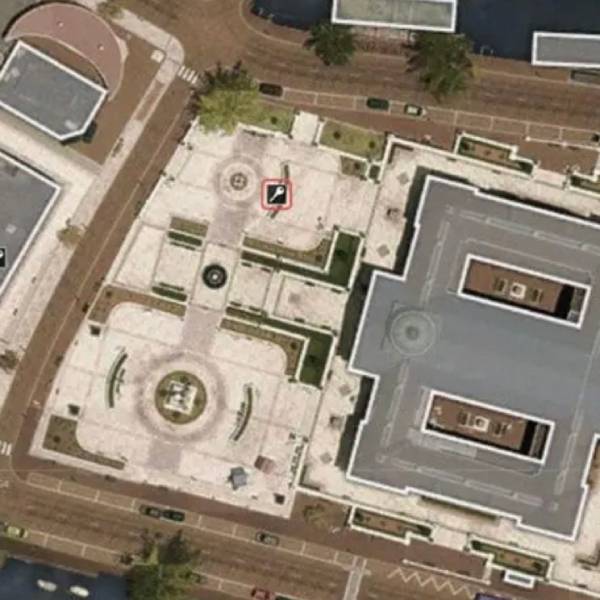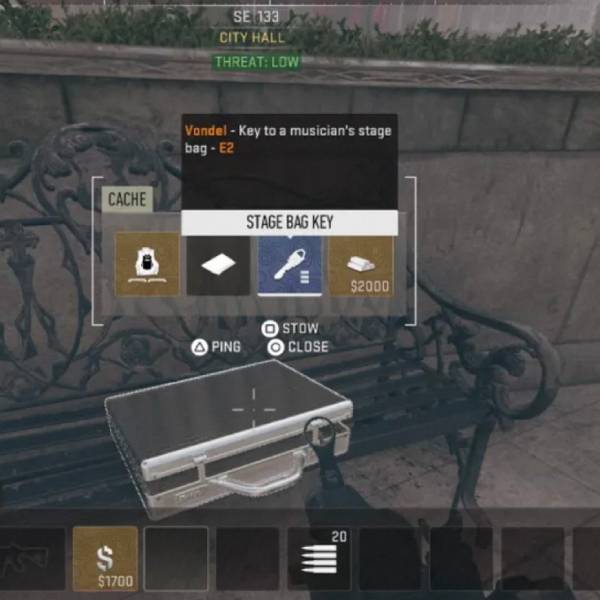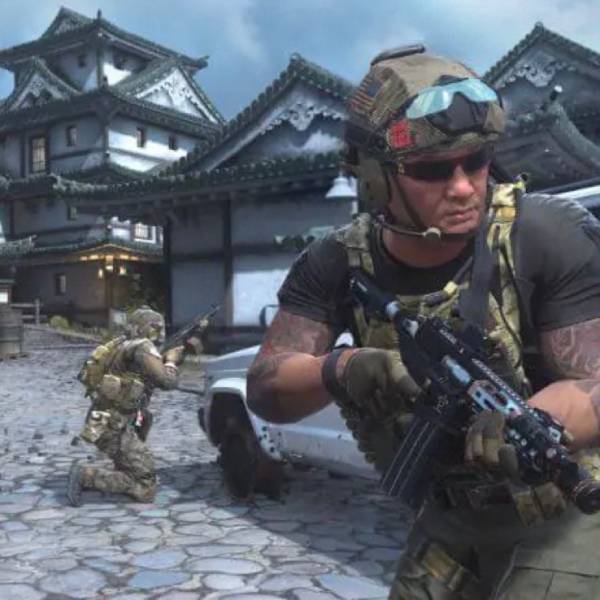The Mayor’s Briefcase Key DMZ: A Historical Treasure
The Korean Demilitarized Zone (DMZ) represents more than just a geographical divide. It symbolizes a history fraught with conflict and hope for peace. Many view the DMZ as a reminder of the division between North and South Korea. This area, established in 1953, acts as both a buffer and a barrier. However, it also stands as a potential site for diplomatic progress. Institutions and leaders often refer to the DMZ when discussing reconciliation efforts. They see it as a space where discussions can unfold and tensions can ease.

The Mystery of the Mayor’s Briefcase Key
The “Mayor’s Briefcase Key” deepens this context with its own layers of meaning. It suggests the importance of leadership and the power of negotiation. This briefcase key often represents the tools necessary for dialogue and resolution. Local leaders hold significant roles in fostering community relations and diplomacy. As mayors engage with international partners, they symbolize unity and collaboration.
Their decisions impact the broader narrative surrounding the DMZ. Therefore, the mayor’s briefcase key not only opens doors but also serves as a metaphor for hope. It embodies the possibility of progress amidst a turbulent past. The interplay between local governance and international diplomacy highlights the importance of connections. Through local actions, leaders can influence larger geopolitical landscapes. Ultimately, the mystery of the briefcase key invites us to explore how each of us can contribute to peace efforts. It reminds us that even small actions can lead to significant changes over time.
Understanding the Mayor’s Briefcase Key DMZ Connection
The mayor’s briefcase symbolizes more than daily tasks. It embodies a community’s aspirations and resilience. In regions near the DMZ, this symbolism takes on significant meaning. Residents often look to their mayors for leadership and hope. The briefcase becomes a tangible representation of this quest for unity. Moreover, it signifies the trust communities place in their leaders. When a mayor carries this briefcase, he or she carries the weight of collective dreams. Each meeting and discussion fosters a connection between governance and its people.
Unlocking Opportunities
Furthermore, the key to the briefcase holds profound significance. It represents opportunities for dialogue and collaboration within divided communities. The key unlocks not just a briefcase but also the potential for peacebuilding. When mayors engage with both sides, they can bridge the gap. They promote understanding and empathy among diverse groups. Therefore, the briefcase serves as a catalyst for meaningful conversations.

People often see the mayor as a beacon of hope, especially during turbulent times. This hope ignites a desire for cooperation and coexistence. As mayors navigate their responsibilities, the briefcase continually reminds them of their pivotal role. Through this lens, it becomes clear that a mayor’s briefcase is not merely a tool. Instead, it stands as a symbol of progress and the endless pursuit of harmony. Therefore, its significance goes beyond governance; it shapes the destiny of communities yearning for peace.
The Historical Significance of the DMZ
The DMZ represents more than just a physical division; it encapsulates decades of tension and struggle. Established following the Korean War, it splits two nations that share a complex history. The area stands as a reminder of unresolved conflicts and deep-seated emotions. Yet, despite the fraught atmosphere, life thrives within the DMZ. The lack of human interference has fostered a unique ecosystem. This biodiversity highlights the resilience of nature even in politically charged landscapes. Consequently, visiting the DMZ not only informs one about history but also reveals nature’s unexpected beauty.
The Role of Leadership in the DMZ
The mayor’s engagement with the DMZ illustrates the merging of politics and history. Their role involves preserving the area’s significance while promoting peace initiatives. Also, they act as a bridge between two worlds, each with distinct perspectives. The key symbolizes hope and the pursuit of reconciliation. As leaders navigate these complexities, their decisions gain far-reaching consequences.
Effective communication becomes essential for fostering understanding among citizens. This dual responsibility motivates mayors to engage in dialogue and promote cultural exchanges. Consequently, these efforts aim to demystify the tensions that engulf the peninsula. As the DMZ evolves, so too does the leadership dynamic, shaping the narrative of both nations. The key that the mayor holds becomes a powerful emblem of potential and unity.

Mayoral Responsibilities in a Divided Land
In a divided land, the mayor faces multiple challenges. First, community relations demand careful attention and proactive strategies. The mayor organizes forums to encourage dialogue among diverse groups. These discussions promote understanding and foster collaboration. As a result, citizens feel heard and valued within their neighborhoods. Furthermore, economic development becomes a critical priority. The mayor works with local businesses and entrepreneurs to stimulate growth. Initiatives like job creation programs and small business grants support local economies. These efforts not only enhance living standards but also boost community morale.
Building Bridges Through Diplomacy
Diplomacy plays a crucial role in the mayor’s responsibilities. The mayor engages with neighboring communities to strengthen ties. Regular meetings help address regional concerns and foster cooperation. The mayor also collaborates with city leaders on projects that benefit both areas. This partnership helps to create a sense of unity, even in divided times. The mayor understands that perceptions matter; they shape both local and international views.
Therefore, developing positive relationships becomes essential for long-term success. A strong diplomatic approach raises the city’s profile and attracts potential investments. Through these efforts, the mayor demonstrates a commitment to progress. Ultimately, building bridges among communities lays the groundwork for a more harmonious society. The mayor’s work exemplifies a dedication to enhancing everyday lives while promoting a vibrant future.
The Symbolism of the Briefcase Key
The briefcase key symbolizes access, opportunity, and responsibility. It embodies the ability to make impactful choices. In this context, the mayor’s briefcase key DMZ offers a metaphor for engaging with communities on both sides of the divide. When local leaders possess this key, they can unlock potential pathways for reconciliation and collaboration.
Challenges Faced by Local Leaders
Local leaders in the DMZ area face unique challenges. They often balance national tensions with local needs. The complexity of relationships in the region can lead to feelings of isolation for communities. The mayor’s briefcase key becomes a vital instrument in promoting dialogue, addressing fears, and encouraging cooperation among residents. The Mayor’s Briefcase Vondel symbolizes a crucial tool for fostering communication and unity in the challenging landscape of the DMZ area.
Initiatives to Bridge Divides
Initiatives designed to bridge divides are crucial. The mayor can spearhead programs aimed at fostering mutual understanding between communities. These might include cultural exchanges, joint community projects, or forums for candid discussions. The mayor’s briefcase key DMZ serves as a literal and metaphorical means to unlock these collaborative efforts. Initiatives like cultural exchanges can highlight the importance of providing resources like girls’ backpacks for school, fostering unity and support in diverse communities.
Moving Towards a Peaceful Future
Looking ahead, the role of the mayor remains essential in shaping a peaceful future. The mayor’s briefcase key embodies the potential to create alliances, nurture trust, and build relationships. As leaders continue to engage with their constituents, the key unlocks a realm of possibilities that can transcend borders. It represents the commitment to not only mitigate conflict but also cultivate hope in a once-divided landscape. The Restaurant Briefcase Key DMZ symbolizes diplomatic efforts to transform conflict zones into thriving communities, fostering collaboration and hope for a peaceful future.
Conclusion: The Lasting Impact of the Mayor’s Briefcase Key DMZ
In conclusion, the mayor’s briefcase key DMZ is more than just an object. It holds the power to unlock dialogues, foster connections, and bridge divides in a complex geopolitical landscape. Leaders who understand its significance can transform their communities. As we reflect on the role of local governance amid division, one thing becomes clear: the future lies in their hands. The key can indeed unlock a path towards reconciliation and peace.

